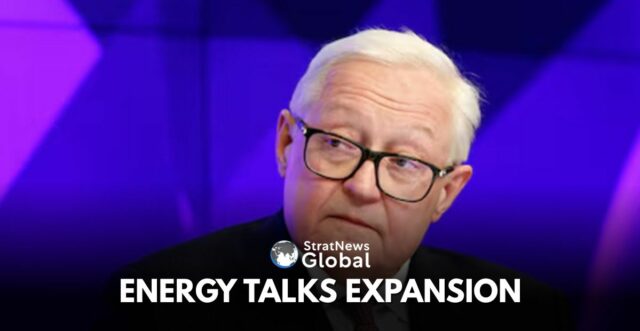Russia‘s Deputy Foreign Minister Sergei Ryabkov said on Wednesday that Moscow is prepared to expand energy talks with the United States, including the Sakhalin 1 project, RIA reported.
Ryabkov also said that Russia was in contact with the U.S. on various issues and that dialogue continued.
“I can mention Sakhalin-1 as the most obvious example of the work that has begun in this area,” he was quoted as saying by RIA.
Russian president Vladimir Putin signed a decree last month that could allow foreign investors, including top U.S. oil major Exxon Mobil, to regain shares in the Sakhalin-1 oil and gas project.
The signing of the decree came on the day Putin met Donald Trump in Alaska for a summit where opportunities for investment and business collaboration were on the agenda, alongside talks to find peace in Ukraine.
Exxon previously held a 30% operator share in the lucrative project, and is the only non-Russian investor to have quit its stake. The U.S. major took an impairment charge of $4.6 billion to exit its Russian business after Moscow sent troops into Ukraine in February 2022.
Sakhalin 1 Project
The Sakhalin 1 project is one of Russia’s most significant oil and gas ventures, located off the northeastern coast of Sakhalin Island in the Russian Far East.
It is a large-scale offshore development comprising three main fields—Chayvo, Odoptu, and Arkutun-Dagi—spread across the Sea of Okhotsk.
Launched in the 1990s, Sakhalin 1 has been central to Russia’s strategy of harnessing its vast energy resources in the Far East to cater to both domestic and international markets.
The project is operated by Sakhalin-1 Consortium, which historically included ExxonMobil, Rosneft, India’s ONGC Videsh, and Japan’s SODECO.
ExxonMobil played a leading role until 2022, when Western sanctions over the Ukraine conflict prompted the U.S. major to exit the venture. Since then, Rosneft has taken a stronger lead in managing operations.
Sakhalin 1 is particularly noted for pioneering advanced drilling technologies, including some of the world’s longest extended-reach wells, allowing efficient extraction of oil and gas in challenging Arctic conditions.
The output contributes significantly to Russia’s crude oil exports, with much of the production shipped to Asia-Pacific markets such as Japan, South Korea, and China.
(With inputs from Reuters)





